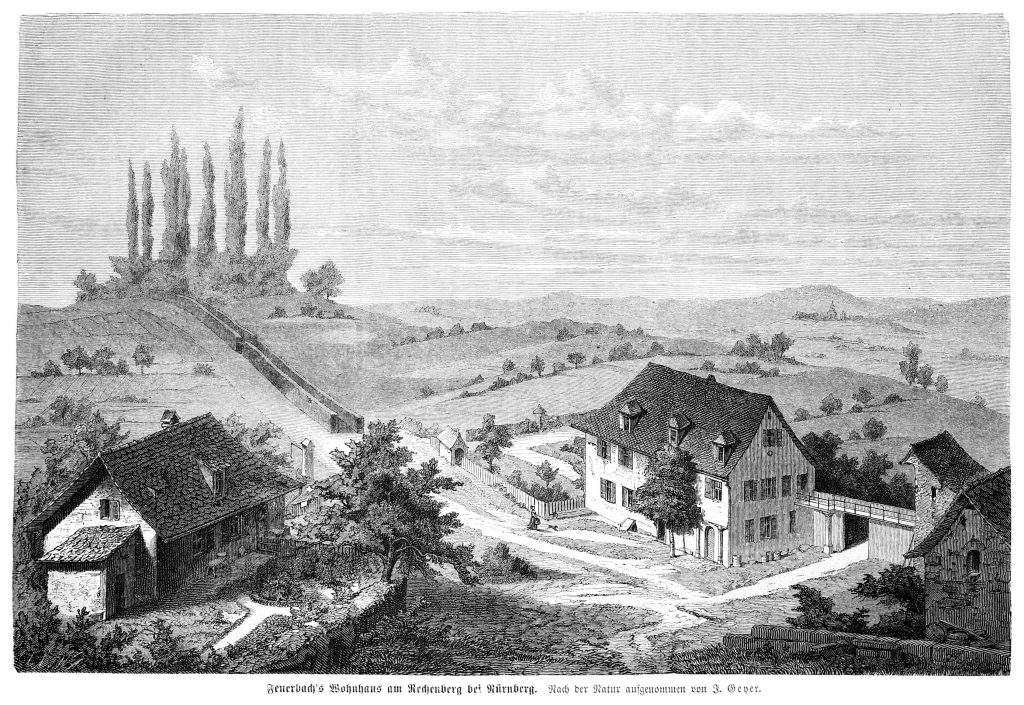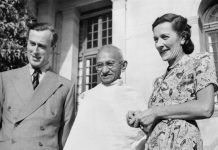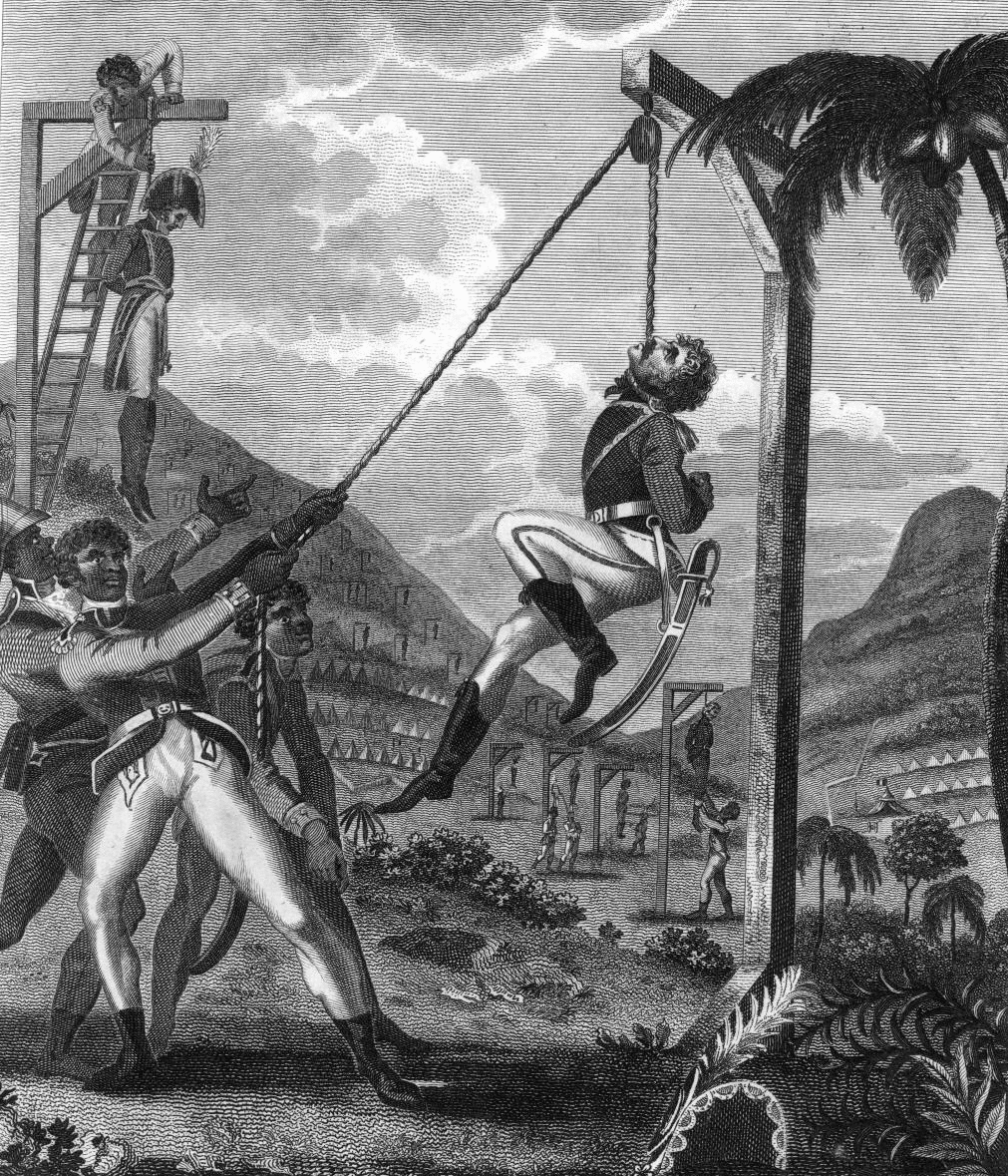
Socialistisk Biblioteks Tidslinje med links til begivenheder og personer i 1804.
Se også Index over personer, organisationer/partier og værker (som bøger, malerier, mm.), steder, begivenheder, mv., der er omtalt på hele Tidslinjen, titler og indhold på emnelisterne osv.
1. januar 1804
Efter slaveoprøret (1790-) (med general Toussaint Louverture) på Haiti vandt de indfødte uafhængighed, og general Jean-Jacques Dessalines udråbte sig til kejser (1805) i verdens første frie sorte nationalstat.
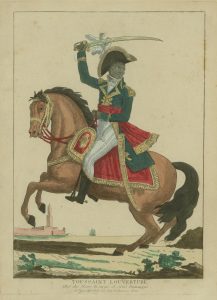
Links:
- Haitian Revolution (Wikipedia.org).
- History of the Haitian Independence Struggle, 1791-1804 (Marxists Internet Archive).
-
Toussaint Louverture (Wikipedia.org).
- The Louverture Project: a free Haitian history resource (site; online at Internet Archive).
- The history of the Haitian Revolution, 1791–1804 (World History Archive).
Toussaint L’ouverture. Af Jonas Ross Kjærgård (Baggrund, 22. marts 2022). “I august 1791 brød et oprør ud blandt de slavegjorte arbejdere i Frankrigs vigtigste koloni, Saint-Domingue … Oprøret udviklede sig til en revolution, og i centrum for begivenhederne stod den nærmest mytologiske skikkelse, Toussaint L’ouverture.”
De sorte Jakobinere 1791-1804. Af Charlie Lywood (Socialistisk Arbejderavis, nr. 390, 8. november 2021) (Almindelige menneskers historie, del 20). “… det var ikke kun i Europa, at ånden fra revolutionen [Frankrig 1789] kunne mærkes. I den franske del af det, der nu kaldes Haiti, Saint Domingo, udbrød der fra i august 1791 et slaveoprør.”
Hvad tænkte de på? De haitianske revolutionæres idéer ved Revolutionens udbrud i 1791 (Baggrund.com, 8. februar 2021). “Nicolai von Eggers ser på det idégods og de erfaringer, som de revolutionære havde med sig, og som på forskellig vis lagde grunden til Revolutionen.”
Stormen på Vertiéres (Arbejderen.dk, 18. november 2011). “For første gang i historien lykkes et slaveopgør med nederlag for magthaverne og udråbelsen af den franske koloni Saint Dominigue til den frie nation Haiti.”
Toussaint Louverture: The story of the only successful slave revolt in history (RS21, 22 September 2023). “CLR James’ is known for The Black Jacobins, but few are aware that he also wrote a play about the Haitian Revolution. Now, Nic Watts and Sakina Karimjee have brought it to life in a graphic novel. rs21 member Matthew Cookson spoke to them both.”
Happy birthday, Toussaint Louverture. By Carlo Greppi (Jacobin, May 20, 2023). “Born on this day in 1743, Toussaint Louverture led the black uprising that resulted in the Haitian Revolution. He was born a slave, and he died in captivity, having dealt a decisive first blow to colonialism and slavery.”
When Paul Robeson played Toussaint Louverture. By Christian Høgsbjerg (Jacobin, October 2, 2022). “Socialist actor, musician, and civil rights campaigner Paul Robeson viewed the Haitian Revolution as a guiding light in the struggle for freedom and dignity. In 1936, he played the revolutionary leader in C. L. R. James’s play Toussaint Louverture.”
How a slave uprising in Haiti changed the course of history (Socialist Review, Issue 462, November 2020). “When the masses of Paris overthrew the French aristocracy the ideals of their revolution were adopted by the slaves of France’s wealthiest colony. Raj Perera tells the story of the successful Haitian Revolution.”
Black Spartacus. By Rajith Perera (Socialist Review, Issue 462, November 2020). Review of Sudhir Hazareesingh, Black Spartacus: The Epic Life of Toussaint Louverture (Allen Lane, 2020, 464 p.). “This is a gripping biographical account of Toussaint Louverture (1743-1804), the greatest black revolutionary leader emerging within the age of bourgeois revolutions.” See also review by Dan Davison: Toussaint Louverture and the Haitian Revolution (New Politics, December 28, 2020) + Joe Moore: Black Spartacist (Irish Marxist Review, Vol.10, No.29, 2021, p.99-100) + Charles Forsdick: Haiti’s revolutionary leader Toussaint Louverture is a hero for our time (Jacobin, March 10, 2022).
Haiti’s Revolutions and Revisions (Black Agenda Report, 27 May 2020). An interview with Charles Forsdick and Christian Høgsbjerg about their book: Toussaint Louverture: A Black Jacobin in the Age of Revolutions (Pluto Press, 2020, 208 p.). “Toussaint stressed that freedom was something that had to be fought for and taken from below by the masses themselves.”
The Common Wind charts the black resistance movement that won. By Dominic Alexander (Counterfire, June 13, 2019). Review of Julius S. Scott, The Common Wind: Afro-American Currents in the Age of the Haitian Revolution (Verso, 2018, 246 p.). “Scott’s classic shows the world-historic impact of the Haitian Revolution of 1791, the first successful slave revolt in history.”
Toussaint Louverture, leader of the Haitian revolution (Charnel-House, May 20, 2017). “To honor and commemorate his birthday, then, I’m also including a poem dedicated to Toussaint by the poet William Wordsworth and a short story by the novelist Ralph Ellison.”
“The Slave-Holding Republic”. By Jennifer Jopp (Against the Current, Issue 186, January-February 2017). Review of Gerald Horne, Confronting Black Jacobins: The United States, the Haitian Revolution, and the Origins of the Dominican Republic (Monthly Review Press, 2015, 424 p.). “Horne carries the narrative into the 19th century, excavating the transformative impact of the Haitian revolt on Europe and, most particularly, the United States.”
Haiti’s Jacobin. By David A. Bell (The Nation, November 2, 2016). Review of Philippe Girard, Toussaint Louverture: A Revolutionary Life (Basic Books, 2016, 352 p.). “A new biography explores the mysterious life and times of Toussaint Louverture.”
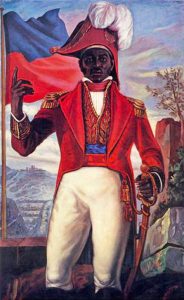
A spectacular corner of history: writing the Haitian Revolution. By Christian Høgsbjerg (International Socialism, Issue 145, Winter 2015). Review of Philip Kaisary, The Haitian Revolution in the Literary Imagination: Radical Horizons, Conservative Constraints (University of Virginia Press, 2014, 256 p.).
Toussaint L’Ouverture and the Haitian slave revolution. By Neil Faulkner (Counterfire, 21 October 2013). “On 1 January 1804 they proclaimed the Republic of Haiti – an independent black-ruled state created by slave revolution. It would stand as a beacon lighting the road to eventual emancipation across the Americas.”
Politics, morality and the Haitian Revolution: A book in progress, Part 15. By Kenan Malik (Pandaemonium, April 11, 2012). “This extract … tells the story of the Haitian Revolution and what that revolution reveals about the relationship between morality and politics in the modern world.”
Toussaint L’Ouverture: The Gilded African (Socialist Review, Issue 344, February 2010). “Locked in an Alpine castle, Toussaint L’Ouverture died in April 1803 having led the slave insurrection of Saint-Domingue and challenged French domination of the Caribbean.”
The tragedy of Toussaint L’Ouverture: Haiti’s Robespierre. By Björn Kumm (CounterPunch, January 19, 2010). “C.L.R. James sadly concludes that Toussaint L’Ouverture, Haiti´s revolutionary leader, was in fact a Black Jacobin, a Caribbean Robespierre, radical but authoritarian, not inclined to listen to his people.”
Toussaint & Lenin: The Haitian & Russian Revolutions (ChickenBones, 8 December 2008; online at Internet Archive). “What should Toussaint have done? A hundred and fifty years of history and the scientific study of revolution begun by Marx and Engels, and amplified by Lenin and Trotsky, justify us in pointing to an alternative course.” Extract from CLR James’ The Black Jacobins.
The slave revolution: Saint-Domingue 1791-1803. By Greg Oxley (In Defence of Marxism, 15 December 2004). “The insurgent slaves finished by defeating, each in turn, the great European powers like Spain, England and France. But it is also a history of greed, cynicism and inhumane cruelty on the part of the ruling classes.”
Of human bondage. By Robin Blackburn (The Nation, October 4, 2004). “In the sequence of revolutions that remade the Atlantic world between 1776 and 1825, the Haitian Revolution is rarely given its due, yet without it the progressive credentials of the others would.”
Haiti: Slave revolution that defeated three empires. By David McNally (New Socialist, Issue 45, January–February 2004). “In 1796, Great Britain, the world’s premier colonial power, sent its largest-ever expeditionary force – 30,000 men on nearly 100 ships – to crush the insurgent armies of ex-slaves before their example spread. Instead, Saint Domingue, as it was then usually known (although the Spanish name San Domingo was also used), became “the burial ground of Great Britain.”
Toussaint L’Ouverture and the great Haitian slave revolt. By Paul Foot (Socialist Worker, Issue 1885, 24 January 2004). “This month saw the 200th anniversary of the founding of the Caribbean republic of Haiti after a revolutionary uprising against slavery.”
The Haitian revolution and Atlantic slavery. By Colin Waugh (Workers Liberty, 2/2, March 2002). “The Haitian revolution of 1791-1804 is arguably comparable in importance to the American Revolution of 1776 and the French Revolution of 1789.”
Toussaint L’Ouverture: The Haitian slave revolt of 1791 (Marxists Internet Archive). A lecture by Paul Foot delivered on 12 July 1991 in London: “Perhaps more important than anything else in the whole history of the world, it’s no great exaggeration to say that, the events that started in 1791 in San Domingo in the West Indies.”
Se også/See also:
Julius S. Scott captured the Haitian Revolution’s emancipatory reach. By Marcus Rediker (Jacobin, December 30, 2021). “Radical historian Julius S. Scott, who passed away this month, transformed our understanding of the Haitian Revolution and its emancipatory impact on freedom struggles throughout the Americas.”
The long Haitian revolution. By Pierre Labossiere, Margaret Prescod and Camila Valle (Monthly Review, Vol.73, No.5, October 2021). “The current situation in Haiti has roots in the historical struggle of the Haitian people, and is part of the endless retribution from imperial powers for its revolution.”
C.L.R. James, Eric Williams, and the end of slavery in the Caribbean. By Walker Mimms (Jacobin, October 10, 2021). “The Trinidadian historians C. L. R. James, a Marxist revolutionary, and Eric Williams, his former student and the prime minister who placed him under house arrest, forever reshaped how we view the end of slavery in the Caribbean and around the world.”
The threat of a free Haiti. By Samuel Farber (Jacobin, January 14, 2016). “In Freedom’s Mirror: Cuba and Haiti in the Age of Revolution, historian Ada Ferrer undertakes a comprehensive evaluation of the impact made by the Haitian Revolution on Cuba, then still a Spanish colony located only fifty miles from Haiti’s western sea borders.”
Retten til at regere sig selv: Revolutionært anti-slaveri i Den Franske og Haitianske Revolution. Af Nicolai von Eggers (Baggrund, 1. oktober 2018). “Denne artikel følger slaveri-debatten fra oplysningens arv i Den Franske Revolution til Haitis og de slavegjortes uafhængighed i 1804.”
15 Black uprisings against European and Arab oppression they won’t teach in schools (Atlanta Black Star, September 26, 2013) + 10 Black uprisings … (October 21, 2013).
Se også på Socialistisk Bibliotek:
- Personlisten: C.L.R. James (1901-1989), med afsnit om bogen The Black Jacobins
- Linkboxen: Slaveri / Slavery
- Linkboxen: Oplysningstiden/The Enlightenment
[sta_anchor id=”18040212″ /]
12. februar 1804
Filosofen Immanuel Kant dør i Köningsberg Kaliningrad] (født samme sted, 22. april 1724, se denne).
[sta_anchor id=”18040701″ /]
1. juli 1804
Feministen og politikeren George Sand fødes som Amandine Aurore Lucille Dudevant i Paris, senere Baronness Dudevant (dør 8. juni 1876 i Nohant).
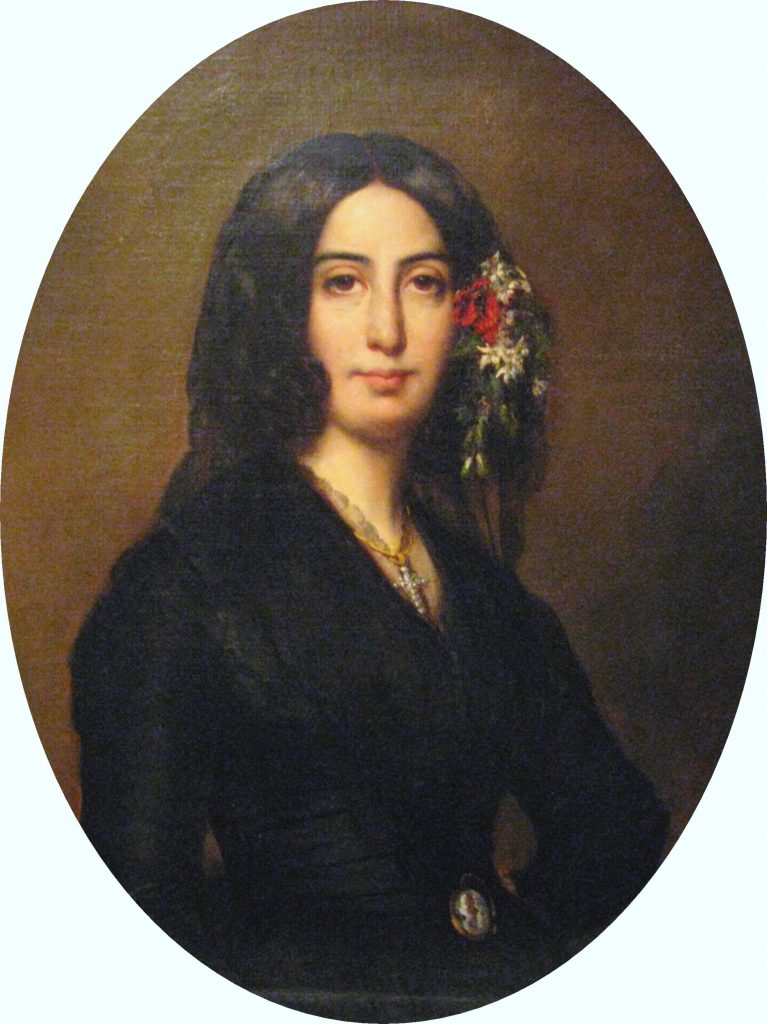
Se:

- Sand, George (Leksikon.org).
- George Sand (Denstoredanske).
- George Sand (Marxists Internet Archive; Glossary of People) (scroll down to name).
- George Sand: Socialist and sensualist. By Duncan Cameron (Rabble.ca, December 8, 2004).

[sta_anchor id=”18040728″ /]
28. juli 1804
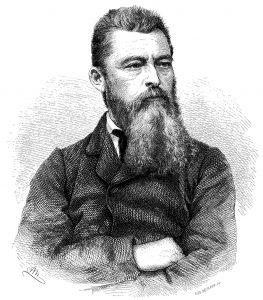
Ludwig Andreas Feuerbach, tysk filosof og materialistisk religionskritiker, fødes i Landshut, Bayern, (dør 13. september 1872 i Rechenberg).
Se:
- Feuerbach, Ludvig (Leksikon.org).
- Ludwig Feuerbach Archive (Marxists Internet Archive). Works + Further reading.
- Ludvig Feuerback (Wikipedia.dk). Kortere dansk artikel med links til længere engelsk og endnu længere tysk fremhævede artikel.
1843-1844: Marx’s Feuerbachian phase. By Jason Devine (Links: International Journal of Socialist Renewal, 12 September 2024). “Marx was already a materialist before he studied Feuerbach’s works. If he did not break with idealism thanks to Feuerbach, then the following questions arise: did Feuerbach actually influence Marx, and, if so, how?”
Ludwig Feuerbach: the ‘true conqueror of the old philosophy’. By Martin Thomas (Workers Liberty, 27 May 2014). “Among Karl Marx’s most famous writings are his Theses on Feuerbach. But who was Feuerbach?”
Marx and Feuerbach. By Sydney Hook (New International, Vol.3, No.2, April 1936; online at Marxists Internet Archive). “The real significance of Marx’s criticism of Feuerbach has not been adequately grasped by the overwhelming majority of his zealous and “orthodox” disciples.”
Ludwig Feuerbach og den klassiske tyske filosofis udgang (1886). Af Friedrich Engels (Marxister.dk). “I denne fagfilosofiske tekst analyserer Engels i korte træk overgangen fra Hegel over Feuerbach til Marx.”
Teser om Feuerbach. Af Karl Marx (Marxisme Online). “Skrevet af K. Marx i foråret 1845. Først offentliggjort af F. Engels i 1888 som tillæg til særtrykket af hans skrift ‘Ludwig Feuerbach’.”
Marx’ revolution i filosofien – refleksioner over Teser om Feuerbach. Af Alan Woods (Revolution, 15. august 2022). “Teser om Feuerbach er et af Karl Marx’ vigtigste filosofiske værket. I værket udlægger Marx den materialistiske forståelse af menneskets bevidsthed og viser, hvordan vores tanker og ideer er produktet af vores plads i den fysiske verden omkring os, og vores inteaktion med den.”
Se også:
The German Ideology (1846). By Karl Marx and Frederick Engels (Marxists Internet Archive).
